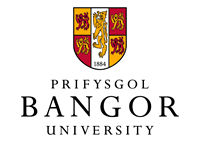Evaluating modalities of delivery of a fluency-based mathematics programme.
GwE & CIEREI, School of Educational Sciences, Bangor University Collaborative PhD award
Background to the Project
Say-All-Fast-Minute-Every-Day-Shuffled (SAFMEDS) is an empirically supported flashcard strategy that pupils can use to build fluency of fact-based or reading skills. When coupled with data-informed decisions using Precision Teaching methods, the SAFMEDS strategy can be an effective way of helping pupils to accelerate their fluency progress and prevent prolonged periods of non-progression.
Over recent years, CIEREI’s research has contributed to the creation of a more evidence-informed system to improve learner outcomes in schools. During the coronavirus pandemic, researchers at CIEREI have worked closely with supporting improvement advisors from GwE to produce a comprehensive suite of SAFMEDS training and support materials for schools to help learners maintain and improve their basic number skills. These support materials now form a core part of GwE’s post pandemic support for struggling learners.
This PhD studentship aims to answer the following research aims: (1) A comparison of the impact of handheld and online applications of the SAFMEDS strategy; (2) An evaluation of the effects of virtual and in-situ implementation support for the SAFMEDS strategy; and (3) An exploration of ways to improve parental provision for the SAFMEDS strategy and precision teaching. The successful candidate will have the opportunity to gain training and experience of mixed-method approaches including randomised trials and focus groups. Closing date 12 noon 29th October 2021.
The outcomes of these projects will inform the support we provide to schools, pupils, and parent/ guardians so that they use and engage with precision teaching and the SAFMEDS strategy effectively. They will also contribute to resource-base for primary and secondary mathematics and numeracy across the GwE region.
GwE is responsible for providing school improvement services to the six local authorities in North Wales: Conwy, Denbighshire, Flintshire, Gwynedd, Wrexham, and Anglesey. GwE supports 404 maintained schools in the region. Since its inception in 2013, GwE has provided leadership, support and challenge to all schools in North Wales. The remit of GwE is both ambitious and crucial to the future economic success of North Wales and aims to support and develop:
1. Curriculum and assessment
2. A high-quality education profession
3. Leadership (through collaboration and professional networks)
4. Strong and inclusive schools
5. A self-improving system (supporting a system in which the education profession has the skills, capacity, and agency to continually improve their practice, and
6. Business (ensuring effective business and operational support that provides value for money).
SUPERVISION
This studentship contributes to an ongoing SAFMEDS programme within North Wales, resulting in a collaboration between CIEREI and GwE. The successful candidate will be supervised by Professor Carl Hughes (Bangor University), Dr Kaydee Owen (Bangor University), and Dr Richard Watkins (GwE). Throughout this studentship, the successful candidate will also have opportunities to work closely with the mathematics and numeracy leads within GwE.
ELIGIBILITY
Studentships are highly competitive, candidates should have an excellent academic background in Education, Psychology or related areas (e.g., applied behaviour analysis), holding a 1st or strong upper 2nd class degree; it is usual for PhD applicants to also hold a relevant Masters qualification.
APPLICATIONS
Shortlisted applicants will be invited to interview, which are expected to take place in beginning of November 2021. After interview, a final short-list of applicants will be put forward to a Panel which final decisions with regard to studentship awards will be made.
HOW TO APPLY
A completed application form, and accompanying documents for admission to doctoral study at Bangor University, should be submitted via the Direct Application Service at https://apps.bangor.ac.uk/applicant/ by 12.00 noon on October 29th 2021.
Incomplete applications or applications received after this specified time will not be accepted. On the on-line application, please indicate that you are applying for the GwE-CIEREI collaborative award under the 'Finance' section. Please use the following working title under the 'Project title' section: Evaluating modalities of delivery of a fluency-based mathematics programme. Please specify the potential start date as 1 December, 2021.
The application must contain the following documents:
1. Covering letter: Please address to Professor Carl Hughes. The covering letter must name the collaborative studentship being applied for. It must set out your reasons and motivation for applying to study at Bangor University and the collaborative project; your understanding, and expectations of doctoral study; and your academic interests generally, and particularly how these relate to the description of the project supplied. The covering letter should be no more than two pages.
2. Academic / Professional Qualifications: This particular study requires a high degree of fluency in English. Fluency in Welsh is also desirable. Please indicate your ability to work through the medium of Welsh and English. Where appropriate, this should include proof any Welsh language qualifications and English Language Competency (7.0 IELTS minimum).
3. References: All applications require two academic references to be submitted in support. Candidates must approach referees themselves and include the references with their application.
4. Curriculum Vitae: This should be no longer than two pages.
5. Reflections on the research topic: For this collaborative studentship, your reflective piece should build directly on the outline description that has been supplied. Your reflection should be up to a maximum of 1500 words, not including bibliographic references. We suggest that you use the following five headings in your reflection piece:
· Your reflections on the aims and purpose of the research;
· An overview of some key research literature relevant to the study;
· Your ideas for developing the design and methods of the study;
· A description of potential outcomes of the project for our understanding, knowledge, policy and practice (as appropriate to the topic);
· Bibliographic references
FURTHER INFORMATION
[Email Address Removed]

 Continue with Facebook
Continue with Facebook

